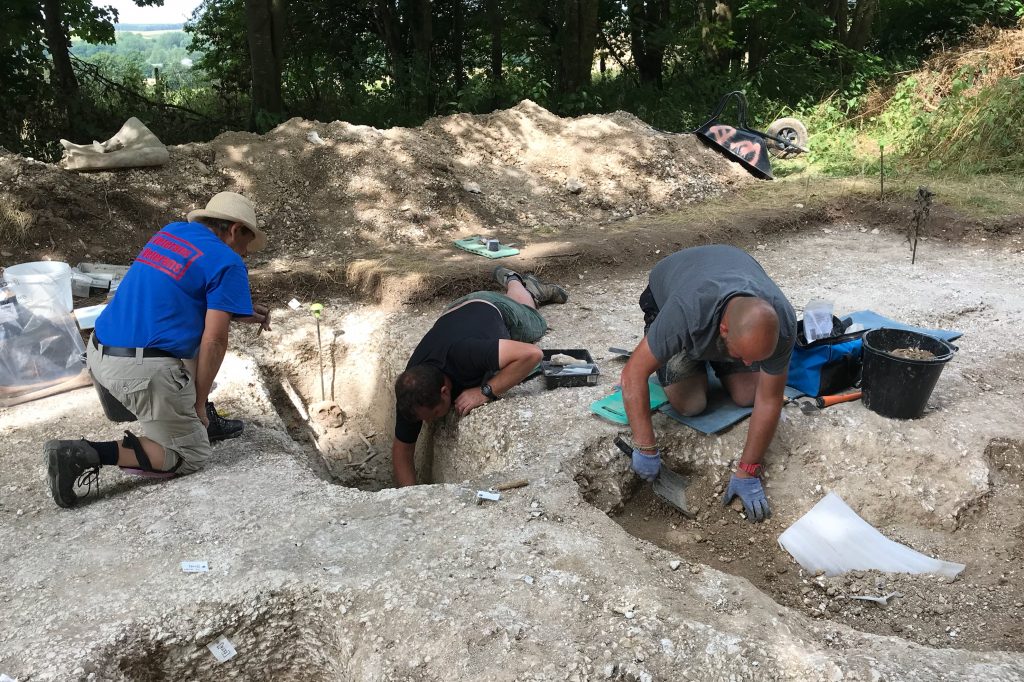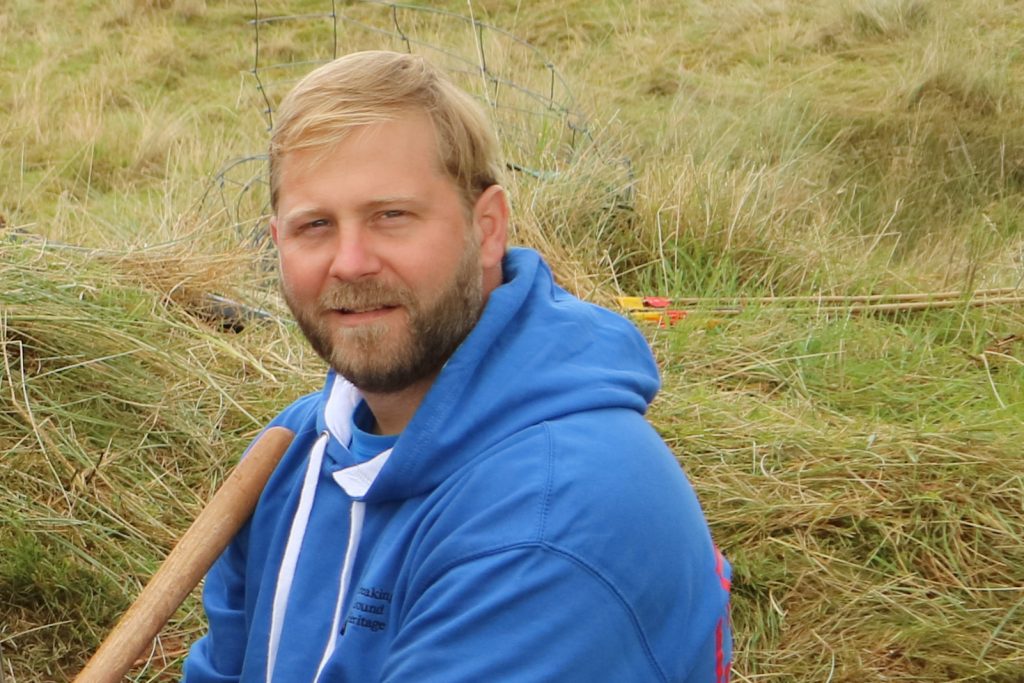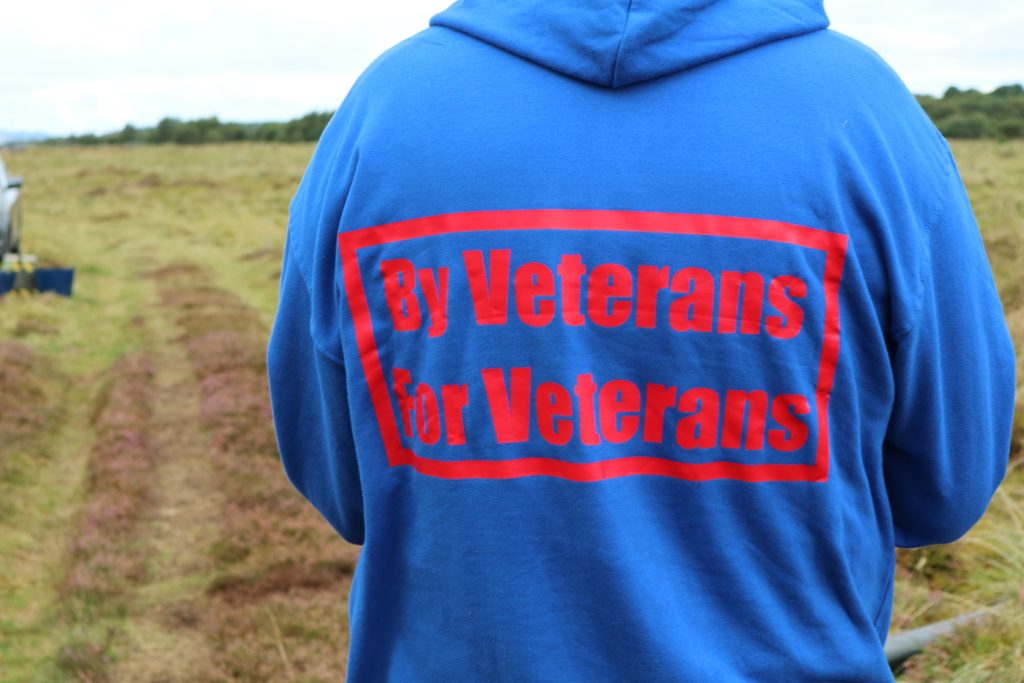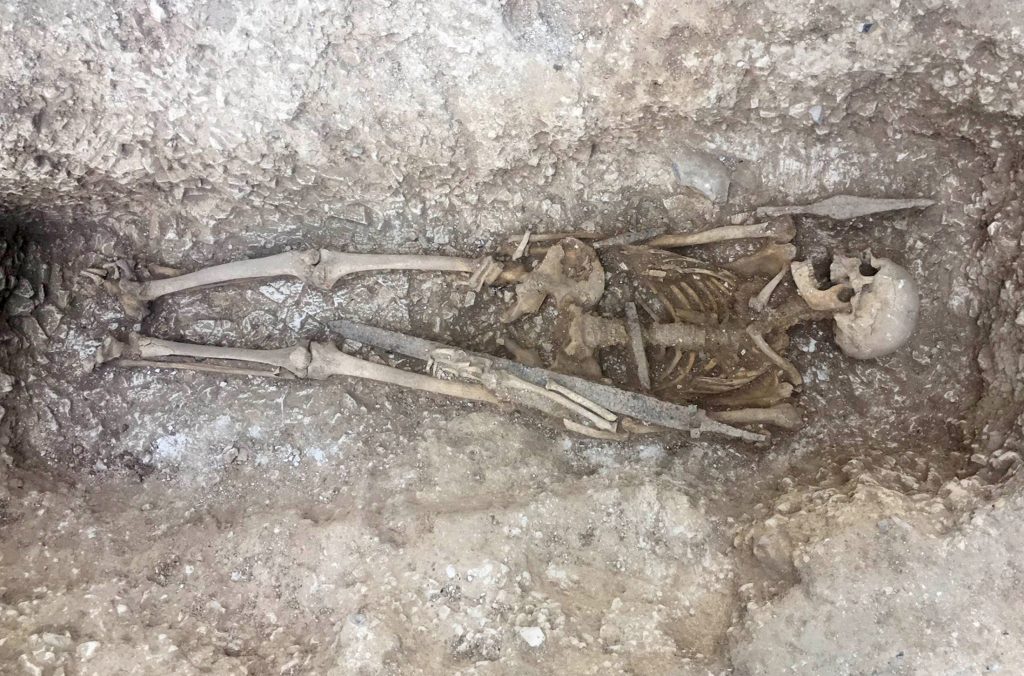
If you’ve read previous Inside DIO blogs on archaeology, you’ll have already come across Operation Nightingale, but in summary it’s a programme which sees wounded, injured and sick military personnel and veterans taking part in archaeological digs on the Defence estate. They are supported in this by professional archaeologists from DIO, from universities and from private companies.
In my former life, I was a Royal Marines Commando, a job that I had wanted to do since before I can remember. I enjoyed nothing more than going in the field or deploying on operations, knowing that, I was doing my part to ensure the safety and security of others. Several incidents in Afghanistan unfortunately cut my career short after 17 years.

During my time as a participant on the Operation Nightingale digs I could see the positive effects that it was having on my peers digging alongside me. It was also having a positive effect on me and I was keen to see if this could be developed further, prompting the development of Breaking Ground Heritage (BGH).
Breaking Ground Heritage
The aims and objectives of BGH are to promote wellbeing, develop employment opportunities for those who would like to pursue a career in heritage, and to signpost those academically inclined to further and higher education opportunities. The development of social prescribing pathways through healthcare providers will further promote the positive effects of projects of this type and hopefully save the NHS much needed funding if done responsibly.

Benefits of archaeology
A common phrase by participants relaxing around the campfire is “that’s the first time I’ve told anyone that.” Sometimes this environment provides a safe place for people to be able to talk. It’s only with the experience of working on projects like this that you are able to pick up on these veiled warnings and look to develop strategies and mechanisms for onward referrals or signposting to other agencies that are able to help.
Data obtained during the 2018 excavation season overwhelmingly shows that participant’s self-declared anxiety and depression decreases in severity while their positive wellbeing increases. The task at hand now is to figure out why this is and how we can replicate this success with projects that sit outside the scope of BGH.

This is why, I believe, so many heritage providers and academic institutions are joining the ranks to support BGH and Op Nightingale projects. To make a real difference!
Related blogs:
5 comments
Comment by Mike Bennett posted on
Great work Dickie. Having worked alongside these guys on a few Archeology digs I can also see the benefits that working as a group can bring. With several participants developing their interest into a professional career move into Archeology it has proved to be a tremendous success story. Well done all Breaking Ground Heritage participants!
Comment by Russ Bottomley posted on
Always had an interest in archaeology since being a youngster but never did anything about it. Am I too old at 56 to be looking at a career change and is there a career to be made in this line of work?
Russ (ex REME)
Comment by DIO Communications Team posted on
Hi Russ
You could always sign up for a dig and see what you think of it? Details here: https://www.gov.uk/guidance/operation-nightingale
Comment by Maria T. Fotias posted on
Dear Mr Bennett,
I am a Greek national, an archaeologist and daughter, granddaughter, cousin and niece of Army, Navy and Air Force Officers. I obtained two years ago a second MA with the University of Plymouth on Applied Strategy and International Security. I focused on terrorism and destruction of cultural heritage, and during my research I came across Op Nightingale, which I found extremely interesting and useful at all levels. I hold the premise in my PhD -viva coming up in the next few months- that such projects should be expanded and used as a blueprint for other social groups as well.
I would like to assist in any way possible as well as explore ways to inform the Public Administration and the public of the well-being that such projects offer.
I look forward to hearing from you soon.
Yours Sincerely
Maria T. Fotias
[Email address removed by Admin]
Comment by DIO Communications Team posted on
Hi Maria, thanks for your interest! Please contact Dickie via his organisation https://breakinggroundheritage.org.uk/